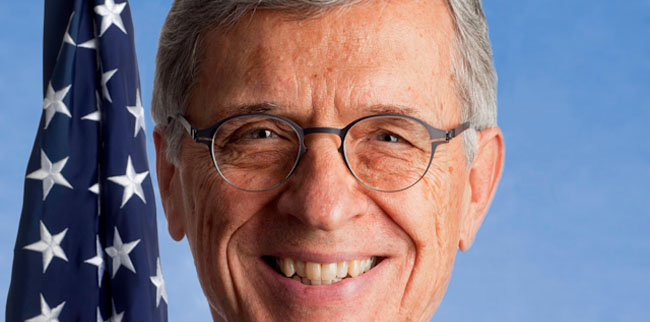FCC Chair: Internet Should Be a Utility

Echoing the sentiments of President Barack Obama from late last year, FCC Chairman Tom Wheeler explained his plan for dealing with the Net Neutrality question: the Internet ought to be run like a utility – mostly.
Back in November, the president said that he thinks that the FCC should invoke Title II of the Telecommunications Act, and that’s basically what Wheeler has proposed in an op-ed published by Wired today.
“Using this authority, I am submitting to my colleagues the strongest open internet protections ever proposed by the FCC,” he wrote. “These enforceable, bright-line rules will ban paid prioritization, and the blocking and throttling of lawful content and services. I propose to fully apply—for the first time ever—those bright-line rules to mobile broadband. My proposal assures the rights of internet users to go where they want, when they want, and the rights of innovators to introduce new products without asking anyone’s permission.”
However, Wheeler says that he plans to revise Title II, to “modernize” it, as he says, in order to fit the new and unforeseen needs of the Internet age.
He elaborates:
“For example, there will be no rate regulation, no tariffs, no last-mile unbundling. Over the last 21 years, the wireless industry has invested almost $300 billion under similar rules, proving that modernized Title II regulation can encourage investment and completion.”
“Last-mile unbundling,” if you’re wondering, is the practice where the owner/maintainer of a particular “line” of access, like say Verizon’s telephone network in one state or another, or Time Warner’s cable lines must offer competitors the ability to pay for access to those lines, and then turn around and sell access to customers so as to avoid a monopoly. Wheeler’s proposition, at least in that particular detail, would help ISPs looking to gain a competitive edge. On the flipside, knocking that out would also benefit consumers, since the company with the best network would get the best business.
The most important aspect of this plan, however, is the simple fact that the FCC has come down on the side of consumers and maintaining Net Neutrality. That means no fast lanes and slow lanes, no priority for one kind of content or customer, and the free and open Internet that we’ve all come to love and rely on.
The FCC will vote on the plan – which is set to be formally unveiled this week – on February 26. Before then, and likely after, ISPs who were flexing their muscles to pressure the FCC into letting them do whatever they want will undoubtedly bring legal challenges to the plan. Hopefully the plan will live up to Wheeler’s description and will protect consumers from the whims of huge corporations who might want to throttle your connection if you don’t pay premium prices – and hopefully whatever legal challenges they bring will be struck down as they rightfully deserve.
[Source: Wired]